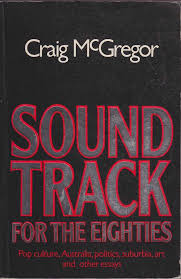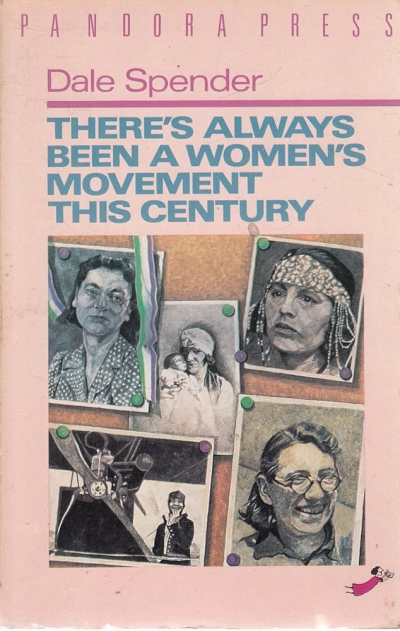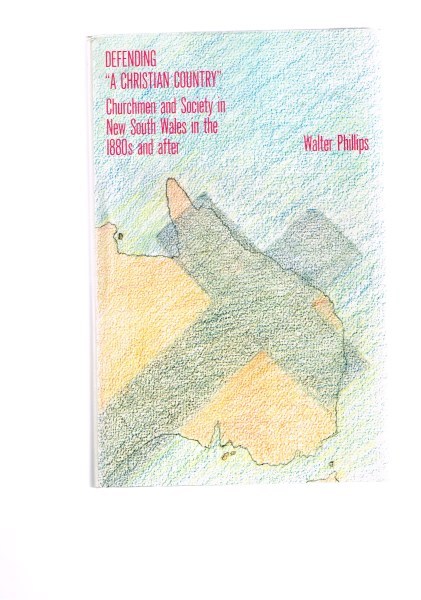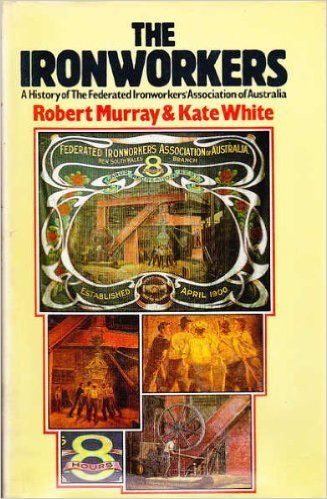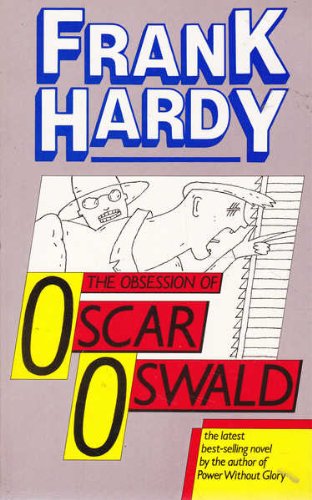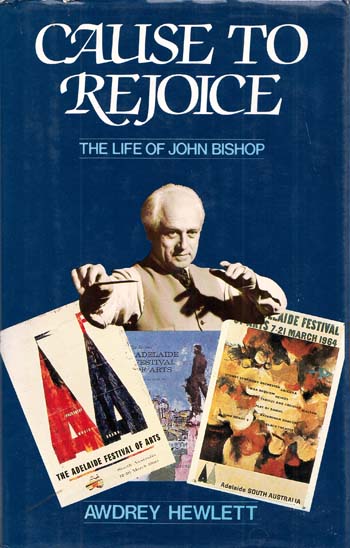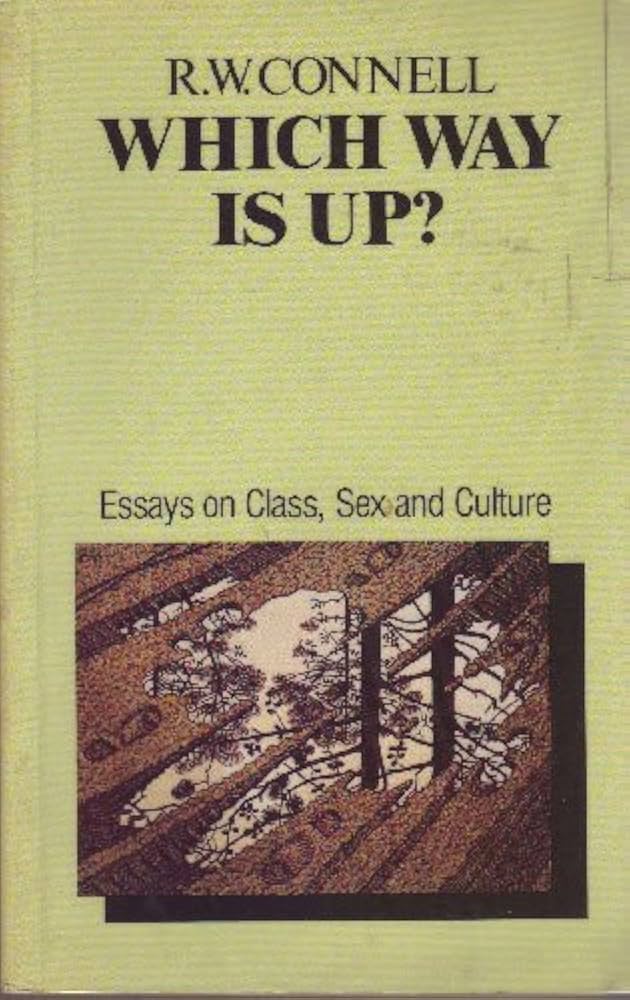Non Fiction
In an essay on ‘Equality’ Craig McGregor tells us that when he was a kid he was mystified by those tales where the fisherman’s wife or whoever would be given three wishes by the Good Fairy and she ‘always wished for crazy self-indulgent things like ‘ I wish everybody I touched turned to gold’, and of course it always rebounded on them ... and I always wondered why they didn’t wish for something more general, like wishing that everyone in the world ... should be happy every afterwards, because then nothing could ever go wrong again and the world would be a perfect place to live in ... all it needed of the fishermen and fishermen’s wives and shoemakers and others was a bit of imagination, and a bit of common sense, and just a hint of generosity ... Ah! the birth of utopianism.’
... (read more)Intruders on the Rights of Men by Lynne Spender & There's Always Been a Women's Movement this Century by Dale Spender
‘“No room! No room!” they cried out when they saw Alice coming.’ In her introduction to There's Always Been A Women's Movement this Century, Dale Spender admits that the elan of involvement in the recent women’s movement made her overlook ‘the unlit corridor of women's history’. She deplores ‘the process of reducing women to invisibility’. In a patriarchy, ‘sexism’ is ‘something that all members do ... There weren’t many patriarchal traps that I did not fall into’. Wanting to ‘generate a tradition of strong authoritative women’, she interviewed five ‘elder stateswomen’, all born between 1890 and 1910: journalist and leader of the six Point Group for equality Hazel Hunkins Hallinan; journalist and novelist Rebecca West; pacifist, educationalist and writer Dora Russell; journalist and Fawcett Society stalwart Mary Stott; sociologist Constance Rover. The result was ‘a genuine educational experience’ that prompts some flushed prior publicity: ‘it would be a (patriarchal) mistake to think of these discussions as insignificant but pleasant gossip about old times. This is a form of women's history ... each women tells her own story ... despite all the many limitations, we have here a valuable record’.
... (read more)Defending ‘A Christian Country’: Churchmen and society in New South Wales in the 1800s and after by Walter Phillips
Mapping the boundaries of relationships between church and state is a vital part of religious history. Walter Phillips makes a major contribution to our understanding of the changes which followed the ending of state aid in the nineteenth century. The pressures of voluntaryism made the retention of vision of a Christian country very hard, for protestant individualism and denominational competition made the shaping of a common ethos impossible. Nevertheless, Phillips makes it clear that the protestant churches, through their leadership, put up stiff resistance to the trends of the times.
... (read more)The Ironworkers: A History of the Federated Ironworkers Association of Australia by Robert Murray and Kate White
The authors’ respective backgrounds gave them excellent qualifications to write this history of the FIA and the result is a book which should have much wider interest than its bland title suggests.
... (read more)In Carlton the graffiti’s already been around for months: ‘Oscar Oswald is right ... 1984’. Now even if you’ve never heard of Oscar Oswald you’ll know one thing about him and that is that he's not George Orwell ‘If Oscar Oswald is right in 1984,’ the graffiti might easily be saying, ‘then George Orwell must have had it all terribly wrong in 1949’.
... (read more)Cause to Rejoice by Audrey Hewlett & Playing for Australia by Charles Buttrose
There is a long tradition in Australian music publishing that only the worst will do. In the era of long-winded and Latinised Victorian histories and reminiscences of old colonists, the music sector easily bested the rest for pontification and inaccuracy. In the thirties, when even journalistic standards were at an all-time local low, the few music histories and biographies that managed to find their way into print, often via the vanity presses, were tediously pedantic. The forties actually improved on matters, due to war-time isolation and a new awareness of music as propaganda; but the fifties produced the most conservative of demi-books, their authors still mentally located somewhere on their knees before a middle European iconostasis that concealed, artistically, a good deal of ritualised nonsense in the name of cultural superiority.
... (read more)Which Way is Up?: Essays on class, sex, and culture by R.W. Connell
R.W. Connell is unquestionably the most intellectually ambitious Australian socialist. To call him a prodigious synthesiser is an insult, yet his mind is hospitable to an amazing variety of theoretical influences and thoroughly digested bodies of empirical data. Since his seminal essay ‘Images of Australia’(l968) he has set out to upgrade radically Australian sociology. While his assumptions are often contested, and his achievements are sometimes regarded as trite or tautologous, there is no doubt that he has originated the most consistent and theoretically sophisticated analysis of Australian society.
... (read more)The dawn and the evening of the world, alike, are seeding-grounds of myth and archetype: the distant past, when chthonic Ancestors are imagined to have emerged from a landscape of rocks and dust – the post-holocaust world of the future, where a landscape of rocks and dust is imagined to have emerged as fruit of hidden and poisonous seeds within the human psyche.
... (read more)On April 8 1901 the LMS missionary James Chalmers was eaten by Goaribari villagers in the Gulf of Papua. The cannibalistic nature of Holy Communion notwithstanding, the Christian administrators of British New Guinea conducted several punitive raids against the offending gourmets during the next three years. In consequence there were a lot of people killed by arrows and guns, a Royal Commission of Inquiry, and a suicide. The suicide was that of Judge Christopher Robinson, the first Australian to act as Administrator in New Guinea. With a revolver he blew his brains out at the base of the government flagpole in Port Moresby on June 20 1904.
... (read more)Teacher Learning edited by Gwyneth Dow & Melbourne Studies in Education 1982 edited by Stephen Murray-Smith
Gwyneth Dow has edited a collection of essays that forms a relevant and coherent whole. The authors seek to salvage what they see as ‘the good things’ in education reform of the late sixties and early seventies, reform that had weaknesses which were the result of ‘faulty thinking, poor social analysis, romantic psychological theories, slip-shod pedagogy’. The contributors to this book are Rory Barnes, Gwyneth Dow, Rod Foster, Noel P. Gough, Bill Hannan, and Doug White. Gwyneth Dow points out they do not all share the same ideological positions, but they are clearly in fundamental agreement about curriculum reform, a more democratic approach to teaching and to the running of schools, and a more socially aware view of teaching and teacher education.
... (read more)

